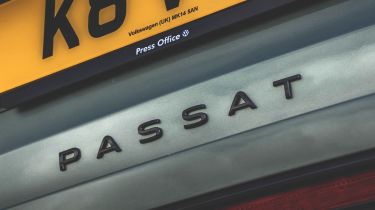Volkswagen Passat - Reliability & safety
The Volkswagen Passat scores maximum points with Euro NCAP; the Volkswagen brand needs to improve its Driver Power score

The latest Volkswagen Passat was too new to have been included in the 2023 Driver Power customer satisfaction survey, so we’ll have to wait and see how owners rate what the car is like to live with over time.
Volkswagen needs to do more to improve customers' ownership experience with its cars. The brand came in a lowly 27th out of 32 manufacturers included in the survey, only narrowly beating Ford and, embarrassingly, coming behind stablemates SEAT and Skoda.
Safety experts Euro NCAP awarded the latest Passat the maximum five out of five-star rating, a result shared with its sibling, the Skoda Superb. The Passat did better in the adult and child occupant protection categories than the far pricier BMW 5 Series, which is a great result. If you want something even safer, you’ll have to go electric and turn to the Volkswagen ID.7 (also available as an estate in VW ID.7 Tourer form), with superior scores in the adult, child, and vulnerable road user categories.
Like the ID.7, the Passat has all the latest safety assistance features. One is autonomous emergency braking (AEB) to mitigate or avoid low-speed collisions with other vehicles or pedestrians. There’s adaptive cruise control to keep you at a safe distance from the vehicle in front, plus a lane departure and lane keep system to keep you within your lane on the motorway. Blind spot monitoring is also standard, and warns you of vehicles alongside you in your blind spot when you go to change lanes on the motorway.
Additional side airbags for rear seat passengers are a £400 option that’s bundled in with the addition of a tyre pressure monitoring system.
|
Key standard safety features |
Euro NCAP safety ratings |
|
Warranty
The standard three-year or 60,000-mile manufacturer warranty is quite stingy compared to Hyundai's five-year, unlimited mileage warranty or Kia's seven-year/100,000-mile warranty.
Servicing
Those who mostly drive around town completing short journeys will be on the more frequent fixed service plan, which requires yearly trips to the dealer for servicing, or every 9,300 miles. Anyone driving more on the motorway will be on a variable service scheme, with longer two-year maintenance visits, or every 18,600 miles.








